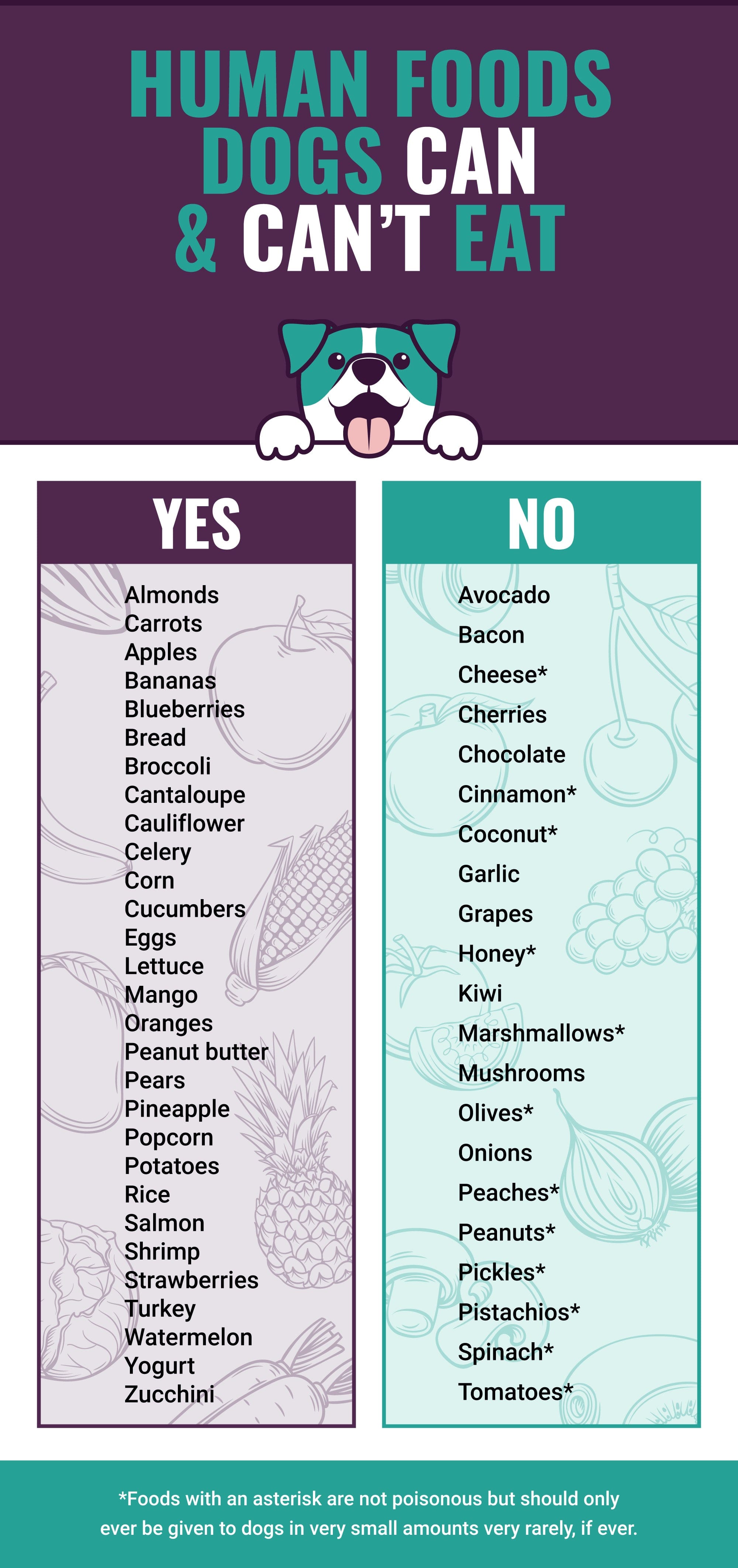Welcoming a new furry friend into your family is an exciting time, and it’s natural to want to share your meals with your beloved pet. Many pet parents wonder, “What human foods can dogs eat?” The good news is that several common human foods are not only safe but also beneficial for dogs when prepared correctly and given in appropriate portions. This guide, drawing insights from veterinary professionals, explores the healthiest human foods that dogs can enjoy, offering insights into their nutritional benefits and how they can even enhance your dog’s regular meals.
What Human Food Can Dogs Eat? [With Health Benefits]
Dogs can safely enjoy a variety of human foods in moderation. These include plain-cooked meats, certain vegetables, and select fruits. When incorporated thoughtfully, these foods can supplement your dog’s diet, providing essential nutrients and making mealtime more engaging, especially for picky eaters.
1. Cooked, Unseasoned Meats (Chicken, Turkey, Beef)
Plain, cooked chicken, turkey, and beef are excellent sources of lean protein crucial for your dog’s muscle development and overall health. It is vital to ensure that all bones are removed before serving, as cooked bones can splinter and cause serious internal injuries. Dr. Sylvia Berns, Sploot’s Medical Director, emphasizes, “Even cooked bones are risky. They can splinter in the dog’s GI tract and cause issues such as perforations.” Among these options, chicken is often considered the most balanced, offering high protein with lower fat content. Remember, while these meats are beneficial, they should complement, not replace, a complete and balanced commercial dog food diet.
2. Cooked, Unseasoned Fish
Cooked fish, with all bones meticulously removed, is another excellent choice. Fish provides a good source of protein and beneficial omega-3 fatty acids, which support skin and coat health. As with other meats, careful preparation to eliminate choking hazards like fish bones is paramount.
3. Cooked Eggs
Whether scrambled or hard-boiled, cooked eggs are a nutritious treat for dogs. They are packed with protein, vitamin D, selenium, and riboflavin, contributing to your dog’s overall well-being.
4. Cooked Pumpkin
Cooked and chopped pumpkin is a fantastic addition to a dog’s diet. It’s rich in fiber, aiding digestion, and beta-carotene, which promotes a healthy coat. Its low-calorie and low-fat profile makes it an ideal treat for dogs managing their weight.
5. Cooked Green Beans
A great source of fiber and vitamins C, cooked green beans are a healthy and low-calorie snack. They can support your dog’s overall health and are particularly suitable for overweight dogs.
6. Cooked Carrots
Cooked and chopped carrots offer your dog valuable fiber, vitamin A, and beta-carotene. Ensuring carrots are sufficiently cooked makes them easier to digest and unlocks their nutritional benefits.
7. Cooked Spinach
This nutrient-dense leafy green is a powerhouse of vitamins A, K, C, potassium, and fiber. Cooked spinach is soft and doesn’t require chopping, making it an easy addition to your dog’s meals.
8. Sliced Apples (In Moderation)
Apples, including the skin, can be a crunchy and healthy treat. Always remove the core and seeds, and chop the apple into bite-sized pieces to prevent choking. Apples provide vitamins A and C, along with fiber. Due to their natural sugar content, they should be given in moderation.
9. Bananas (In Moderation)
Bananas are a favorite for many dogs and are a good source of potassium, fiber, and magnesium. However, their high natural sugar content means they should also be offered sparingly.
10. Cooked Oatmeal
Oatmeal is a healthy breakfast option that also benefits dogs. It contains vitamin B and linoleic acid, which are important for skin and coat health. Its soluble fiber content also makes it a common ingredient in commercial dog foods.
A Note About Dogs as Omnivores & Common Dog Allergies
Understanding your dog’s dietary nature and potential sensitivities is crucial before introducing new foods.
1. Dogs Are Omnivores
Domestically, dogs have evolved to be omnivores, much like humans. This means they can digest and benefit from both plant and animal-based foods. While this allows them to enjoy many fruits and vegetables, it doesn’t mean they can eat everything humans do. The key is that dogs can eat cooked vegetables without needing them pureed, as long as they are prepared simply – steamed or boiled without added oils, butter, or spices, and cut into manageable pieces.
2. Food Allergies in Dogs
While meat-based foods are common treats, some dogs can develop allergies to common proteins like beef, chicken, eggs, fish, or dairy. It’s advisable to introduce new foods in small quantities to monitor for any adverse reactions. Some dogs may also have grain allergies. If you suspect your dog has food allergies, consulting a veterinarian is essential for proper testing and management strategies.
Final Thoughts on Human Foods That Dogs Can Eat
Incorporating these healthy human foods into your dog’s diet can offer numerous benefits, but it’s crucial to remember that they are supplemental. These treats are not a substitute for a high-quality, nutritionally complete commercial dog food. For those seeking vet-approved options, SplootRX offers a reliable selection of pet supplies.
If you have any concerns about your dog’s nutrition or health, the team at Sploot Veterinary Care is ready to assist. Offering comprehensive services including primary care, urgent care, and emergency services across multiple locations in Denver, Chicago, and Colorado Springs, Sploot Vets is open 365 days a year with extended hours. You can easily book an appointment online or through the Sploot Vets app. Urgent drop-off appointments are also available by phone.
Boost Your Pet’s Wellness & Save With SplootPack™
Enhance your pet’s health and manage costs with the SplootPack™ membership. Available at Sploot’s Denver, Colorado Springs, and Chicago clinics, this membership can save you over $600 on essential veterinary care, including waived wellness exams, discounts on services, and more.

